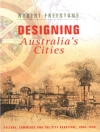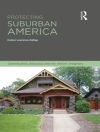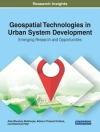Engaged Urban Pedagogy presents a participatory approach to teaching built environment subjects by exploring 12 examples of real-world engagement in urban planning involving people within and beyond the university. Starting with curriculum review, course content is analysed in light of urban pasts, race, queer identity, lived experiences and concerns of urban professionals. Case studies then shift to focus on techniques for participatory critical pedagogy, including expanding the ‘classroom’ with links to live place-making processes, connections made through digital co-design exercises and student-led podcasting assignments. Finally, the book turns to activities beyond formal university teaching, such as where school-age children learn about their own participation in urban processes alongside university students and researchers. The last cases show how academics have enabled co-production in local urban developments, trained community co-researchers and acted as part of a city-to-city learning network. Throughout the book, editorial commentary highlights how these activities are a critical source of support for higher education.
Together, the 12 examples demonstrate the power and range of an engaged urban pedagogy. They are written by academics, university students and those working in urban planning and place-making. Drawing on foundational works of critical pedagogy, they present a distinctly urban praxis that will help those in universities respond to the built environment challenges of today.
Praise for Engaged Urban Pedagogy
‘Engaged Urban Pedagogy is an important book, and its editors are to be congratulated in making the case… that ‘engaged urban pedagogy’ has potential in helping tomorrow’s education and practice meet those challenges.’
Journal of Urban Design
Inhoudsopgave
List of figures
List of tables
List of contributors
Preface
Acknowledgements
1 Towards an engaged urban pedagogy
Lucy Natarajan and Michael Short
Section I: Reviewing curricula
2 Race and space: a pedagogic intervention
Yasminah Beebeejaun and Catalina Ortiz
3 Queering the built environment curriculum
Celine Lessard, Renée Etokakpan, Juliana Martins, Corin Menuge, Jordan Rowe, Ramandeep Shergill, Michael Short
4 Co-designing educational assessments with students and external partners
Gemma Moore and Maria Xypaki
5 Engaged pedagogy, informality and collaborative governance in South Africa
Stuart Paul Denoon-Stevens, Lauren Andres, Martin Lewis, Lorena Melgaço, Verna Nel and Elsona van Huyssteen
Section II: Providing teaching
6 Planning imaginations and the pedagogic value of external guest speakers
Lucy Natarajan and Mike Raco
7 Co-Producing planning? Neighbourhood planning as the context for participative pedagogy
Elena Besussi and Sue Brownill
8 Podcasting and Collaborative Learning Practices in place-making studies
Silvia Gullino, Simeon Shtebunaev and Elodie Wakerley
9 Adapting the Civic Design Method to digital learning and collaboration with communities
Pablo Sendra and Domenico Di Siena
Section III: Embedding practices
10 Co-production and the pedagogy of exchange: lessons from community research training in Birmingham
Sara Hassan and Liam O’Farrell
11 Role play activities: a methodology for transformative participation
Teresa Strachan
12 City-to-city learning as impulse for engaged urban pedagogy
Raphael Sedlitzky and Fernando Santomauro
13 Building together and co-building the city: do it yourself!
Dominique Lancrenon, Stephan Hauser, Patrick Le Bellec and Melia Delplanque
Conclusions
14 Critical pedagogy with urban participation
Lucy Natarajan and Michael Short
Index
Over de auteur
Michael Short is Associate Professor (Teaching) of City Planning at the Bartlett School of Planning, University College London. He undertakes practice-based projects, teaching, and research in three main areas. Firstly, in how design issues are negotiated through the planning process and how they are implemented on site. Secondly, he’s interested in the conservation and protection of buildings and areas of the recent past, and the challenges that this presents for practice. And, thirdly, he is interested in the debates about increased building height and density in environments where the historic environment and character of place are relevant. Furthermore, he is interested in queer pedagogies and the experiences of LGBTQ+ staff and students in higher education.












